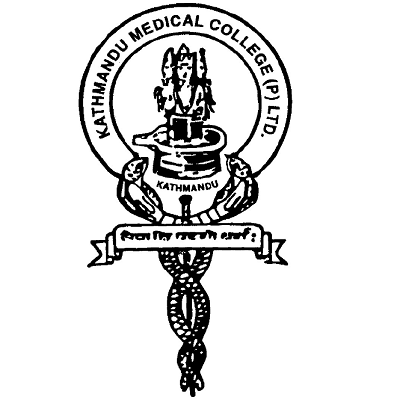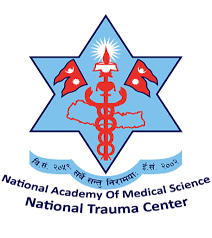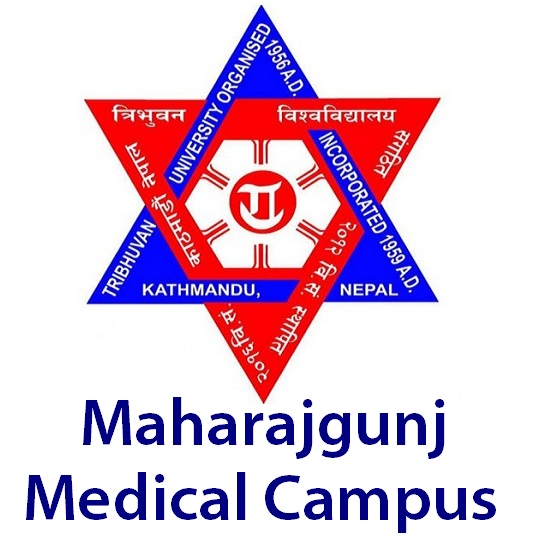Overview
MS Clinical Otorhinolaryngology and Head and Neck Surgery at NAIHS College of Medicine
MS Clinical Otorhinolaryngology and Head and Neck Surgery at Nepalese Army Institute of Health Sciences – College of Medicine (NAIHS-COM) is a three-year postgraduate surgical residency under the Institute of Medicine, Tribhuvan University (TU-IOM).
The program prepares doctors to manage diseases of the ear, nose, throat, and related head and neck structures through both medical and surgical care. Residents work in close connection with Shree Birendra Hospital, a 635-bed tertiary teaching hospital of the Nepali Army located in Chhauni, Kathmandu.
For many young doctors, ENT offers a balance of outpatient practice, emergency care, and advanced surgery. If you want to help patients regain hearing, breathing, speech, and swallowing function, this course provides a structured training pathway grounded in Nepal’s health system and national regulations.
Highlights
-
Program: MS Clinical Otorhinolaryngology and Head and Neck Surgery
-
College: NAIHS College of Medicine, Sanobharyang, Bhandarkhal, Kathmandu
-
Affiliation: Institute of Medicine, Tribhuvan University
-
Duration: 3 years, residency-based
-
Intake at NAIHS-COM: 2 seats (current allocation shared for this program)
-
Teaching Hospital: Shree Birendra Hospital, 635-bed tertiary referral centre of the Nepali Army
-
Approximate Tuition Fee: NPR 2,381,760 for the full course (subject to official revision)
-
Regulatory Bodies: Medical Education Commission (MEC), Nepal Medical Council (NMC)
Curriculum Details
The MS ENT curriculum at NAIHS-COM follows the TU-IOM structure for postgraduate surgical training, where the course extends over three academic years.
Year one usually focuses on building strong clinical examination skills and core knowledge of ENT and head and neck disorders. Residents spend long hours in OPD, wards, emergency rooms, and operating theatres, learning how to assess patients, interpret investigations, and assist in surgery.
Year two shifts more responsibility to the resident. You begin to perform a wider range of procedures under supervision, manage in-patients more independently, and take active roles in emergency call duties. Rotations cover otology, rhinology, laryngology, head and neck oncology, audiology, allergy clinics, and skull-base related work where available.
Year three builds senior residency skills. You supervise junior residents, lead case presentations, perform complex procedures with guidance, and complete your research thesis as required by TU-IOM. The experience prepares you for consultant-level practice and academic roles in ENT and head and neck surgery.
Throughout the three years, residents participate in journal clubs, seminars, mortality and morbidity meetings, inter-departmental case discussions, and undergraduate teaching sessions. This academic environment is consistent with NAIHS-COM’s wider approach to integrating teaching, clinical work, and research across its programs.
Objectives
Key objectives of the MS Clinical Otorhinolaryngology and Head and Neck Surgery program include:
-
Develop specialists who can diagnose and treat a wide range of ENT and head and neck conditions.
-
Train residents to perform common and advanced ENT surgeries safely and systematically.
-
Build strong competencies in emergency airway care, trauma, and life-threatening ENT situations.
-
Encourage sound clinical judgement based on evidence, national guidelines, and ethical practice.
-
Prepare graduates to teach undergraduate and junior postgraduate students.
-
Promote involvement in clinical research and academic activities related to ENT and head and neck surgery.
Scope
ENT and head and neck conditions remain common in Nepal due to infections, allergy, trauma, noise exposure, and tobacco-related cancers. Specialists are required in central hospitals, provincial facilities, medical colleges, and emerging private centres.
An MS in this field opens opportunities to work as an ENT and head and neck surgeon within the Nepali Army health services, civilian government hospitals, teaching hospitals, or community-level institutions. Graduates also remain eligible for further super-specialization or focused fellowships in areas such as otology, neurotology, head and neck oncology, skull base surgery, laryngology, and pediatric ENT, in Nepal or abroad, depending on institutional openings.
Learning Outcomes
On successful completion of the program, graduates are expected to:
-
Diagnose and manage common and complex diseases affecting the ear, nose, paranasal sinuses, pharynx, larynx, salivary glands, thyroid, and neck.
-
Perform a wide range of ENT procedures such as myringotomy, tympanoplasty, mastoid surgery, septoplasty, functional endoscopic sinus surgery, tracheostomy, tonsillectomy, adenoidectomy, laryngoscopy, and neck dissections according to the level of training.
-
Interpret audiograms, tympanograms, vestibular tests, endoscopic findings, radiological investigations, and histopathological reports relevant to ENT practice.
-
Handle ENT emergencies including airway obstruction, epistaxis, foreign bodies, head and neck trauma, and post-operative complications.
-
Communicate clearly with patients and families about diagnoses, treatment options, consent, and follow-up.
-
Plan and conduct a research project, write a thesis, and present findings in academic forums as required by TU-IOM regulations.
Skill Development Modules
Residents gain structured exposure across several skill domains:
-
Clinical assessment – detailed ENT history taking, examination with headlight and otoscope, nasal and laryngeal evaluation, neck examination, and cranial nerve assessment.
-
Endoscopic skills – diagnostic nasal endoscopy, laryngoscopy, bronchoscopy, and otoendoscopy under supervision.
-
Audiology and vestibular work – interpretation of hearing tests, basic counselling for hearing rehabilitation, and coordination with audiologists.
-
Operative skills – stepwise training from assisting to performing surgeries in otology, rhinology, laryngology, and head and neck surgery.
-
Emergency management – airway control, tracheostomy, foreign body removal, trauma care, and post-operative monitoring.
-
Academic and teaching skills – preparation of case presentations, seminars, journal reviews, and bedside teaching for MBBS and bachelor-level students (BPH, BSc MLT).
Teaching Methodology
NAIHS-COM uses a mix of structured teaching and service-based learning throughout its programs.
For MS ENT, residents learn through:
-
Departmental lectures and topic reviews based on TU-IOM guidelines.
-
Bedside teaching in wards and intensive care units.
-
Out-patient clinics where residents see new and follow-up cases under faculty supervision.
-
Operation theatre postings with graded responsibility for pre-operative planning, intra-operative decision making under guidance, and post-operative care.
-
Regular seminars, case conferences, and inter-departmental meetings, often involving radiology, oncology, neurosurgery, pediatrics, and anesthesiology.
-
Participation in research projects, audits, and quality-improvement activities encouraged across NAIHS.
Modern lecture halls, a well-resourced library, and clinical laboratories support this learning environment.
Admission Requirements
Admission policies for MS Clinical Otorhinolaryngology and Head and Neck Surgery follow national rules set by the Medical Education Commission and Tribhuvan University.
Typical requirements include:
-
MBBS degree from a recognized university.
-
Full registration with the Nepal Medical Council (or relevant council for foreign candidates).
-
Completion of the mandatory one-year rotating internship.
-
Minimum qualifying score in the national MD/MS entrance examination (MECEE-PG) conducted by MEC, with separate provisions for Nepali and foreign applicants.
-
Participation in the matching process conducted by MEC for seat allocation at NAIHS-COM and other colleges.
Specific eligibility conditions, bond requirements for scholarship seats, and service obligations for army or government nominees follow the latest notices from MEC, NMC, the Ministry of Defence, and NAIHS. Applicants must refer to current official documents at the time of application.
Career Opportunities
Graduates of MS Clinical Otorhinolaryngology and Head and Neck Surgery from a TU-affiliated college can work as ENT and head and neck surgeons in:
-
Teaching hospitals under Tribhuvan University and other universities (as per respective regulations).
-
Central, provincial, and district hospitals under the Ministry of Health and Population.
-
Military hospitals within the Nepali Army medical services, including Shree Birendra Hospital.
-
Private hospitals, specialty ENT centres, and multidisciplinary clinics.
-
Academic departments as faculty members, once additional experience and academic criteria are met.
Some graduates pursue fellowships or short-term training in sub-specialty areas in Nepal or abroad, subject to host-institution rules and governmental approvals.
Scholarships and Financial Aid
NAIHS was established under the Welfare Fund of the Nepali Army and has a tradition of allocating seats and support schemes for:
-
Children of serving and retired army personnel.
-
Dependents of personnel who died in service or have permanent disability.
-
General public under paying and scholarship categories defined through MEC.
For postgraduate programs, a portion of seats in Nepal is reserved as national scholarships managed by MEC, where tuition is subsidized in exchange for mandatory service in designated health facilities.
Exact scholarship categories, bonds, and fee structures for MS ENT change according to government and institutional decisions. Applicants should check the latest MEC scholarship notices and NAIHS-COM fee circulars when planning their application.
Why Choose This Course at NAIHS College of Medicine?
MS Clinical Otorhinolaryngology and Head and Neck Surgery at NAIHS-COM combines TU-IOM’s academic standards with the clinical setting of a large army teaching hospital.
Shree Birendra Hospital receives a diverse mix of army and civilian patients, giving residents exposure to both routine and complex ENT cases, trauma, and oncology.
Small intake (2 seats) allows closer supervision and more direct contact with faculty. Residents also interact with students from MBBS, BPH, BSc MLT, nursing, and other disciplines, building inter-professional skills that are important for modern surgical practice.
For doctors who see their future in ENT and head and neck surgery within Nepal’s health system, this course offers structured training within a non-profit institution that is accountable to national regulators and the Nepali Army.
Conclusion
MS Clinical Otorhinolaryngology and Head and Neck Surgery at NAIHS College of Medicine is a three-year TU-affiliated residency that prepares you for specialist practice in ENT and head and neck surgery through intensive clinical exposure, surgical training, academic work, and research.
If you hold an MBBS degree, meet MEC and NMC requirements, and want a structured pathway into ENT within Nepal, this program gives you the opportunity to train in a large teaching hospital with clear academic and regulatory frameworks.
Frequently Asked Questions (FAQ)
1. What is the duration of MS Clinical Otorhinolaryngology and Head and Neck Surgery at NAIHS-COM?
The duration is three years, following the standard TU-IOM residency structure for MS ENT programs.
2. Which university awards the degree?
The degree is awarded by Tribhuvan University through the Institute of Medicine, as NAIHS-COM is affiliated with TU-IOM for its MD/MS programs.
3. How many seats are available for MS ENT at NAIHS-COM?
Current information shared for this profile indicates 2 seats for MS Clinical Otorhinolaryngology and Head and Neck Surgery at NAIHS-COM.
4. What is the approximate fee for the course?
The approximate tuition fee reported for MS Clinical Otorhinolaryngology and Head and Neck Surgery at NAIHS-COM is NPR 2,381,760 for the full three-year program. Applicants should confirm the latest fee with NAIHS-COM and MEC notices before applying.
5. What entrance examination is required?
Applicants must qualify in the national MD/MS entrance examination (MECEE-PG) conducted by the Medical Education Commission and then participate in the matching process for seat allocation.
6. Where does clinical training take place?
Clinical training occurs mainly at Shree Birendra Hospital, the 635-bed teaching hospital of NAIHS in Chhauni, along with related clinical and academic units under NAIHS-COM.
7. Does the program include a thesis?
Yes. TU-IOM MD/MS programs require residents to conduct research and submit a thesis as part of the degree requirement, which applies to MS ENT as well.




















